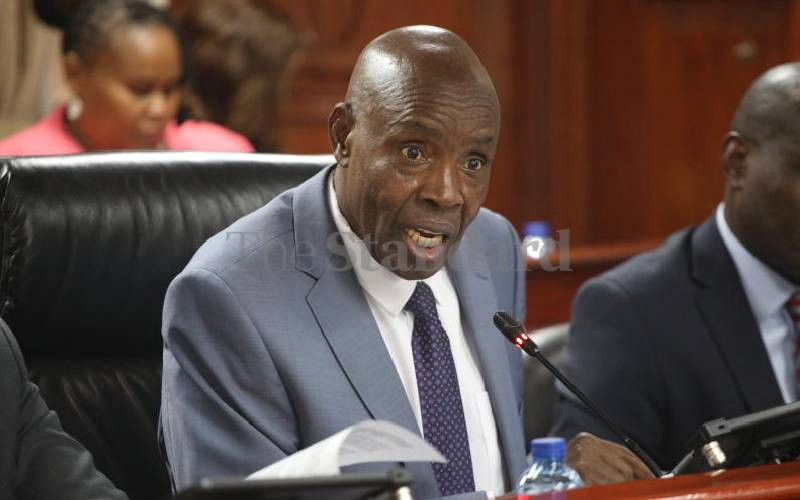The academic seed that Dr Simon N. Gicharu planted in the form of a commercial computer outreach centre in 1996 have borne fruit. Two decades later and the transition to Thika Institute of Technology in 2002 and finally to a fully Chartered University in 2011, MKU’s growth and development has had a profound impact on society.
Since 1996 about 70,000 graduates of the precursor, Thika Institute of Technology and Mount Kenya University, have been awarded various certificates, diplomas and conferred degrees in the various market driven programmes disciplines.
At inception, the Computer Outreach Centre had just one programme in computer packages. The number of programmes has\ grown over the 20-year period. The increase in the number is in response to the market demand to increase access to university education.
The management of Thika Institute of Technology from its inception had made a strategic focus to concentrate on health science programmes. At the time (early 2000), all colleges seemed to be focusing on social sciences, business and art programmes which were relatively easier to mount and operate.
The capital investment needed to mount health programmes and the strict regulations by respective health professional bodies was (and still is) a great barrier to entry. In addition, since most of the private institutions are profit driven, the lower returns on investments associated with health courses discouraged private institutions from mounting such courses. The management at Thika Institute of Technology was therefore delving into unchartered territory as health science training was a preserve of government institutions.
Amongst the first health programmes to be mounted at Thika Institute of Technology was Pharmacy Training at Certificate level in 2000. Before then, the training of Pharmacy professionals was for a long time the preserve of only a few government institutions. The Diploma in Pharmacy programme was only available at the Kenya Medical Training Institute (KMTC) while the Bachelor of Pharmacy programme was offered only at the University of Nairobi.
Thika Institute of Technology was the first private institution to be accredited by the Pharmacy and Poisons Board to offer a Diploma in Pharmacy in Kenya in 2003. Five years later, Mount Kenya University was also to become the first Private University ( and only the second University in Kenya) to be approved by Commission for Higher Education (the precursor of Commission for University Education) to mount the Bachelor of Pharmacy programme in 2008.
In 2006, the Commission for Higher Education (CHE) validated TIT programmes and approved collaboration between TIT and Jomo Kenyatta University of Agriculture and Technology, JKUAT to offer some diploma and degree programmes mainly in business courses. The collaboration provided opportunities to the management of TIT to gain valuable experience on management of the teaching of degree programmes.
In May 2008 Mount Kenya University was established and mandated to offer three CHE approved programmes namely, Bachelor of Business Information Technology, Bachelor of Science in Medical Laboratory Science and Bachelor of Pharmacy.
Mount Kenya University adheres to the quality processes of programme approval. Instruments in place to oversee this process include Departmental /School Curriculum development and review committees, the Senate, Commission for University Education and accredited by the respective professional/regulatory bodies which provide a critical external quality assurance mechanism through their periodic accreditation inspections and review.
 The Standard Group Plc is a
multi-media organization with investments in media platforms spanning newspaper
print operations, television, radio broadcasting, digital and online services. The
Standard Group is recognized as a leading multi-media house in Kenya with a key
influence in matters of national and international interest.
The Standard Group Plc is a
multi-media organization with investments in media platforms spanning newspaper
print operations, television, radio broadcasting, digital and online services. The
Standard Group is recognized as a leading multi-media house in Kenya with a key
influence in matters of national and international interest.
 The Standard Group Plc is a
multi-media organization with investments in media platforms spanning newspaper
print operations, television, radio broadcasting, digital and online services. The
Standard Group is recognized as a leading multi-media house in Kenya with a key
influence in matters of national and international interest.
The Standard Group Plc is a
multi-media organization with investments in media platforms spanning newspaper
print operations, television, radio broadcasting, digital and online services. The
Standard Group is recognized as a leading multi-media house in Kenya with a key
influence in matters of national and international interest.









